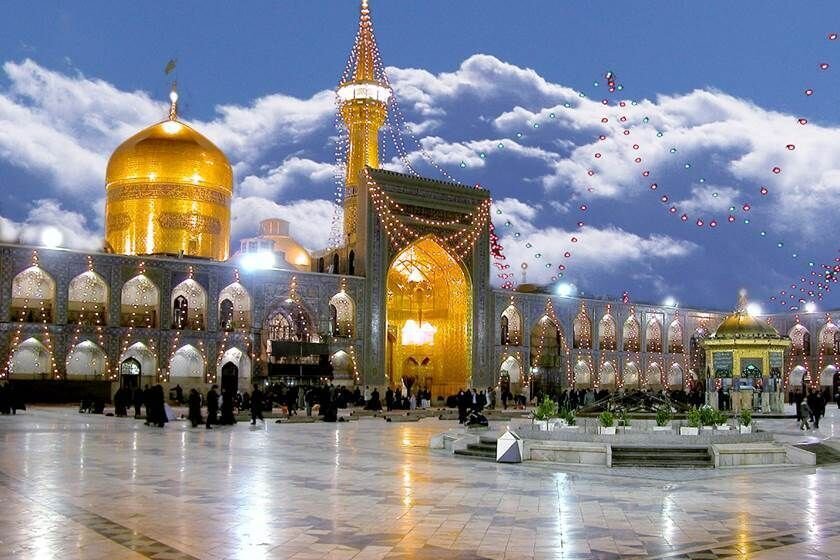TEHRAN – Over 790,000 pilgrims visited the holy city of Mashhad during the two-day Eid al-Fitr holidays, which marks the end of the fasting month of Ramadan, a local tourism official has said.
A total of 793,404 pilgrims paid visits to the city, which shows a 34 percent increase in comparison to the same period last year, Seyyed Javad Mousavi explained on Wednesday.
The holidaymakers also made over 721,000 overnight stays in the accommodation centers of the city during the time mentioned, the official added.
Normally, Mashhad’s holy shrine of Imam Reza (AS) where the eighth Shia Imam is laid to rest, is visited by an average number of 500,000 pilgrims each day, according to Astan Quds Razavi which manages the shrine complex and other associated institutions.
That spiritual tradition of pilgrimage along with sustained efforts to safeguard hospitality services for Razavi pilgrims may join UNESCO’s listing of cultural treasures as Iran has asked the United Nations cultural agency to recognize the concept of ‘Good safeguarding practices to improve hospitality services for Razavi Pilgrims’.
Moreover, the architectural design of the complex has also complied with these traditions and rituals to address the needs of people and the urban landscape.
Historical data suggests that the complex has been developed in different stages of time according to the needs of the people and rituals associated with the holy shrine, yet the structure, design concepts, forms, material, tangible and intangible aspects, morphology, entering circumstances, praying rites and the spirit of the complex retained its authenticity and integrity the whole time and with legal and religious support of authorities and people.
This year’s Ramadan began on March 23, which falls in spring in Iran, and ended on April 22. Because of the nature of the lunar calendar system, the dates of Ramadan vary each year and there is always a sort of disagreement among scholars as to when Ramadan precisely starts or comes to an end.
By tradition, the new moon crescent, which is sighted by the naked eye, marks the beginning of a new lunar month, but these days, Muslims prefer to lean towards astronomical calculations to avoid such confusion.
TAGS


No comments:
Post a Comment